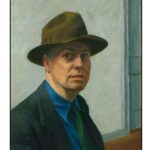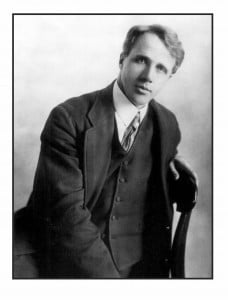
Edward Hopper (1882-1967) painted the independence and the loneliness of 20th-Century America. He was a realist in the days when most painters tended toward the abstract. Yet his paintings incite the imagination far more than the works of any abstract expressionist. His enigmatic images force the viewer to wonder what is going on:
Hopper was neither an illustrator nor a narrative painter. His paintings don’t tell stories. What they do is suggest—powerfully, irresistibly—that there are stories within them, waiting to be told. He shows us a moment in time, arrayed on a canvas; there’s clearly a past and a future, but it’s our task to find it for ourselves. (Block, 2016, p viii).
More than any other painter, Hopper has inspired writers to find the stories and meanings behind his paintings. This post summarizes his life, describes his working methods, and presents some of his pictures together with the writings they have stimulated.




